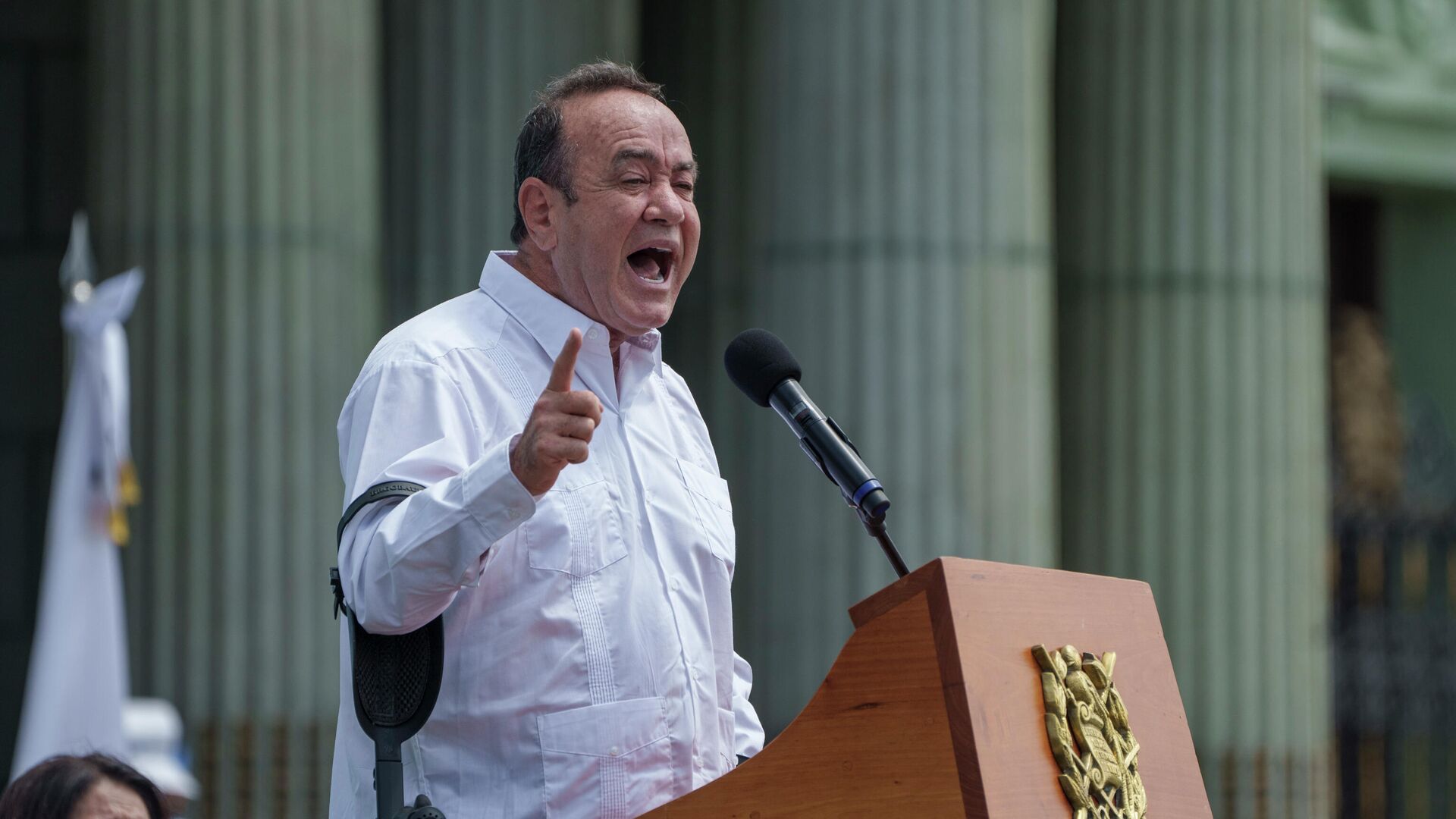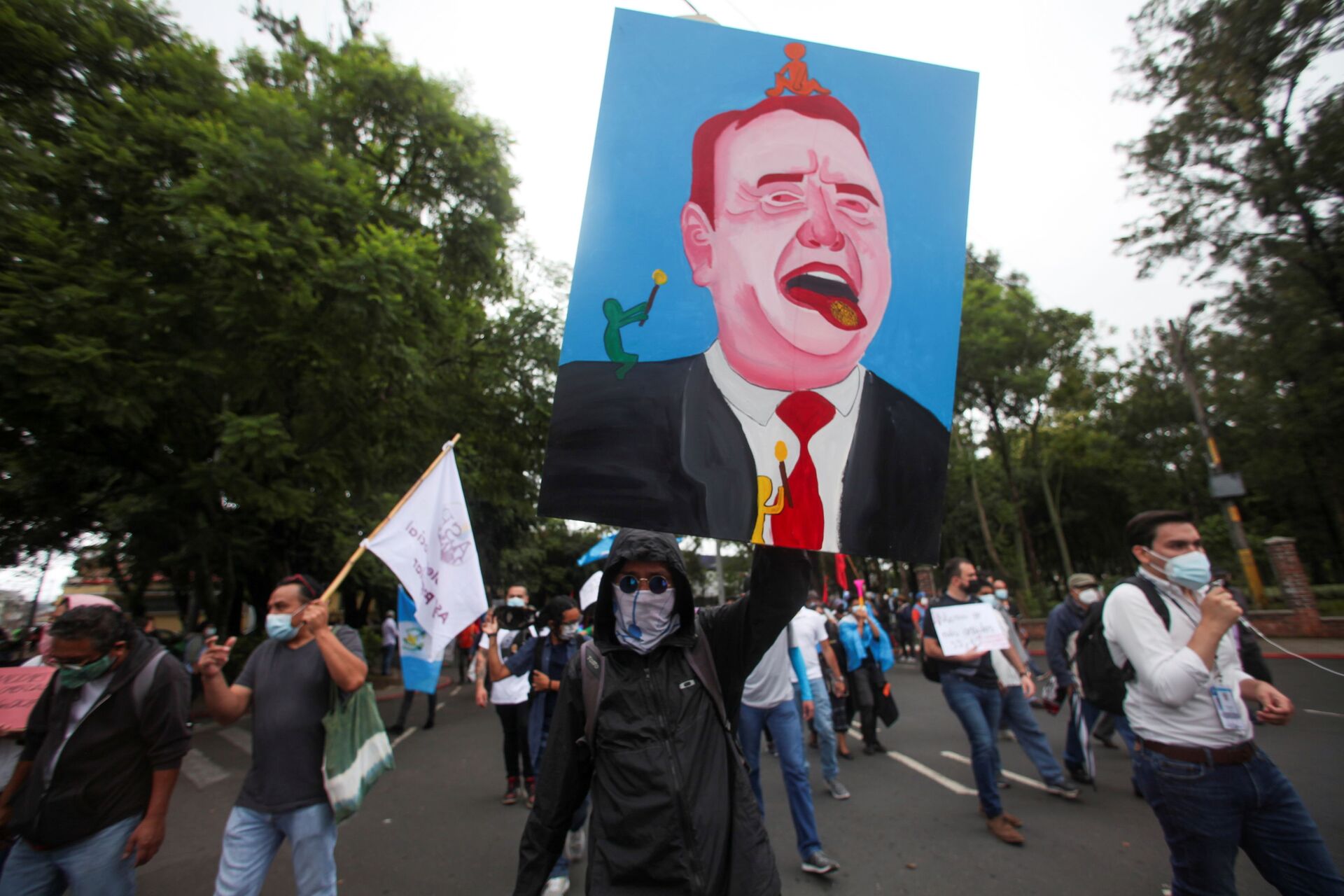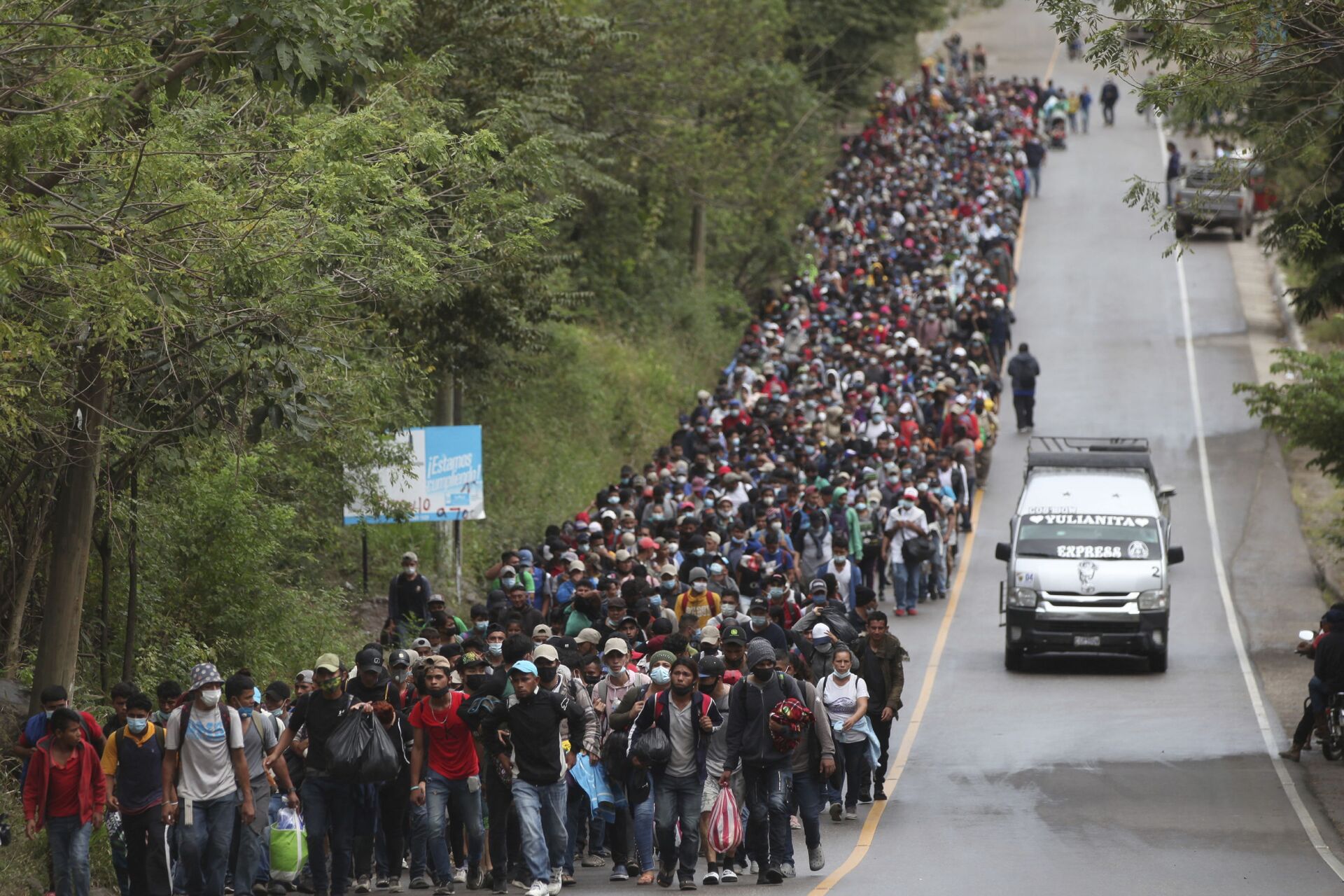Giammattei Proclaims Guatemala “Pro-Life Capital’ With Law Punishing Abortion, Same-Sex Marriage
19:44 GMT 09.03.2022 (Updated: 20:34 GMT 09.03.2022)

© AP Photo / Moises Castillo
Subscribe
After the US sponsored right-wing militias fighting left-wing governments or groups across Central America in the 1980s, those nations became some of the world’s most dangerous for LGBTQ people and other marginalized groups, helping to fuel migrant caravans north toward the US.
The Guatemalan Congress approved a harsh new law on Tuesday, prescribing stiff prison sentences for women who receive abortions, gays and lesbians who marry, and teachers who give instruction about sexual diversity.
The Life and Family Protection Law says that women who "have induced their own abortion or given their consent to another person to carry it out" will be punished with up to 25 years in prison - a sentence that is not commutable, according to Guatemalan daily Prensa Libre.
The bill also introduced a change to the Civil Code to expressly prohibit same-sex marriages in Guatemala and prohibits teaching anyone except for parents teaching children and young adults about sexual diversity.
“Public and private educational entities are prohibited from promoting, in childhood and adolescence, policies or programs related to sexual diversity and gender ideology, or teaching as normal sexual behaviors other than heterosexuality, or that are incompatible with biological aspects. and genetics of the human being,” the law reads.
In the US, a similar convergence of anti-abortion laws, anti-LGBTQ rights laws, and laws restricting childrens’ access to information about LGBTQ identities are being pushed by the same groups of conservatives lawmakers.

A demonstrator holds up a painting of Guatemalan President Alejandro Giammattei during a protest to demand the resignation of Giammattei and Attorney General Maria Porras, in Guatemala City, Guatemala July 29, 2021
© REUTERS / SANDRA SEBASTIAN
The law was proposed by the Vision With Values (Viva) party, a small, far-right party with 7 seats in the legislature, but was approved by a large majority of lawmakers.
President Alejandro Giammattei is a conservative whose policies closely align with US interests. On Wednesday, Giammattei decreed Guatemala to be the “Ibero-American Pro-Life Capital” and promised his administration would protect life in its “five stages” from conception until death.
Jordan Rodas, Guatemala’s human rights ombudsman, denounced the law, telling reporters outside Congress on Tuesday that "it violates human rights, it violates the international agreements ratified by Guatemala, it is a setback to freedoms."
"We are going to file an action of unconstitutionality so that this (law) has no effect,” Rodas added.
Walter Felix, a legislator from the left-wing Guatemalan National Revolutionary Unity, called the law “absolutely discriminatory,” saying it “incites hate.”
"The human rights of significant parts of the population are being violated," Felix said.
Violent Legacy of US-Backed Civil War
Violence against women and LGBTQ people, as well as other marginalized groups like indigenous tribes, is high in Guatemala. In March 2021, New York-based NGO Human Rights Watch (HRW) reported on the systematic persecution of LGBTQ Guatemalans, noting the government’s inaction against deadly violence by public security agents, gangs, and members of the public, as well as victims’ own family members.
Similar dangers imperil indigenous Mayans, who were subjected to genocide by US-backed militias and security forces during the 40-year-long civil war that ended in the 1990s. While a peace treaty purported to end the fighting in 1996, the assassinations have continued and a right-wing, US-aligned government has continued to rule, creating special economic zones with “maquila” factories where US companies can base their factories with little fear of interference in their labor practices.
The attacks have driven huge numbers of Guatemalans into exile, fleeing northward toward the United States in migrant caravans joined by Hondurans and Salvadorans, whose right-wing governments have been similarly hostile toward women, LGBTQ people and indigenous people.

Honduran migrants hoping to reach the U.S. border walk alongside a highway in Chiquimula, Guatemala, Saturday, Jan. 16, 2021
© AP Photo / Sandra Sebastian
In April 2021, US Vice President Kamala Harris spoke with Giammattei about the “root causes of immigration,” which she noted as including poverty, the lack of economic opportunity, corruption, lack of good governance, and “violence against women, Indigenous people, LGBTQ people, and Afro-descendants.” However, two months later, she told a crowd in Guatemala City “do not come” to the US border.
Instead, Harris and the government of Mexican President Andres Manuel Lopez-Obrador have pressed Giammattei to step up border security with Mexico and to stop migrant caravans traveling from the country and from El Salvador and Honduras before they cross into Mexico. Guatemala’s territory straddles the Central American isthmus.
Lets stay in touch no matter what! Follow our Telegram channel to get all the latest news: https://t.me/sputniknewsus
